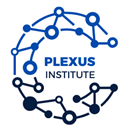[fusion_builder_container hundred_percent=”no” equal_height_columns=”no” menu_anchor=”” hide_on_mobile=”small-visibility,medium-visibility,large-visibility” class=”” id=”” background_color=”” background_image=”” background_position=”center center” background_repeat=”no-repeat” fade=”no” background_parallax=”none” parallax_speed=”0.3″ video_mp4=”” video_webm=”” video_ogv=”” video_url=”” video_aspect_ratio=”16:9″ video_loop=”yes” video_mute=”yes” overlay_color=”” video_preview_image=”” border_size=”” border_color=”” border_style=”solid” padding_top=”” padding_bottom=”” padding_left=”” padding_right=””][fusion_builder_row][fusion_builder_column type=”1_1″ layout=”1_1″ background_position=”left top” background_color=”” border_size=”” border_color=”” border_style=”solid” border_position=”all” spacing=”yes” background_image=”” background_repeat=”no-repeat” padding_top=”” padding_right=”” padding_bottom=”” padding_left=”” margin_top=”0px” margin_bottom=”0px” class=”” id=”” animation_type=”” animation_speed=”0.3″ animation_direction=”left” hide_on_mobile=”small-visibility,medium-visibility,large-visibility” center_content=”no” last=”no” min_height=”” hover_type=”none” link=””][fusion_text columns=”” column_min_width=”” column_spacing=”” rule_style=”default” rule_size=”” rule_color=”” hide_on_mobile=”small-visibility,medium-visibility,large-visibility” class=”” id=”” animation_type=”” animation_direction=”left” animation_speed=”0.3″ animation_offset=””]
 Ten years ago Plexus Institute published a groundbreaking book on the highly complex profession of nursing, On the Edge: Nursing in the Age of Complexity. This book presented the first comprehensive examination of topical nursing issues from a Complexity Science perspective. Complexity Science scholars and nurse leaders explored key Complexity Science principles and the profound implications they hold for clinical practice, leadership, nursing theory development, research, policy making, and understanding human physiology.
Ten years ago Plexus Institute published a groundbreaking book on the highly complex profession of nursing, On the Edge: Nursing in the Age of Complexity. This book presented the first comprehensive examination of topical nursing issues from a Complexity Science perspective. Complexity Science scholars and nurse leaders explored key Complexity Science principles and the profound implications they hold for clinical practice, leadership, nursing theory development, research, policy making, and understanding human physiology.
The pace of change in the practice of nursing, emerging new roles, as well as heightened emphasis on patient safety, healthcare quality and cost management shine the spotlight on the importance of continually addressing these issues in new ways. Plexus is now exploring how to support cross-disciplinary projects that address the broader implications of rapidly shifting healthcare ecosystems, beginning with the current work by Plexus Catalyst Mike Taylor, RN, MHA, CDE .
Taylor shared his original theory of the increasingly complex topic of nursing, health and healthcare in Talking Back to Maslow: Nursing, Complexity and the Science of Compassion – see recorded Pop-up Conversation
In this conversation Taylor discussed the complexity science basis of his theory and how a different view of current thinking and literature in the field will offer critical insights into new practices. Taylor also covered an overview of complexity and health, the structure of the theory, implications for health services and social evolution, and potential problems and issues. You are invited to access this article for a preview of his exciting new work.
We will also be sharing curated resources from the Plexus archives and invite Network members to share new work and lead conversations that explore how we continue to integrate complexity thinking in the field of nursing. As a first step, this bibliography from the Plexus workshop “Creating Healthcare Organizations Where Nurses Thrive” contains recommended reading material and websites on complexity science, nursing, medicine, healthcare and management — and we are seeking suggestions on new resources to add, including new perspectives, practices and research.
[/fusion_text][/fusion_builder_column][/fusion_builder_row][/fusion_builder_container]
